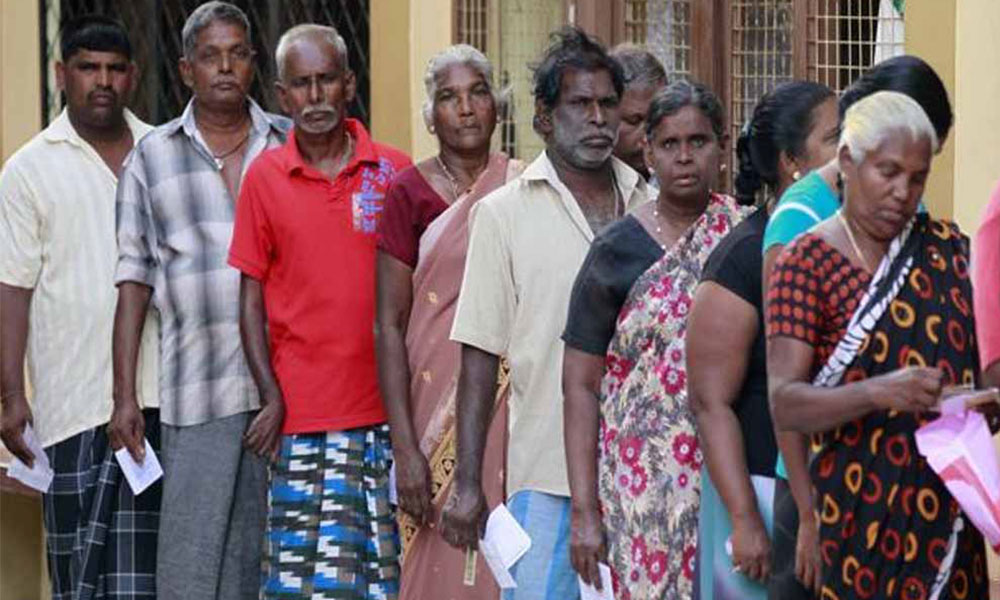The Global Tamil Forum (GTF) urges Tamil people from the North-East and throughout Sri Lanka to freely exercise their franchise at the November 16 Presidential Election, giving careful consideration to the political formations and agendas of the major contenders.
After playing a decisive role in the political change of 2015 and experiencing disappointments on the new government’s performance, a sense of cynicism has set in among the Tamil people. The refusal by all major Presidential contestants to engage with Tamil political leaders based on their collective positions is also disappointing, the GTF pointed out.
"All those negative sentiments however should not lead to political apathy and despondency. It is important that Tamil people take active part in this election, instead of giving into flawed thinking such as 'sending a message to the international community’ through ineffective voting strategies. Also important is that Tamil people should use their vote wisely for a candidate who has a realistic chance of winning. Any wasted vote could lead to the election of a candidate not to their liking," the GTF said in a statement.
In this context, the upcoming Presidential Election raises genuine doubts about whether Sri Lanka will restart and broaden its reform and accommodative agenda or change course, perhaps for the worse.
Sajith Premadasa’s election manifesto is progressive on furthering democratic reforms, which includes key Tamil considerations such as: continuation of the constitutional reform process, power-sharing and reconciliation commitments, and respecting international treaties and resolutions. Gotabaya Rajapaksa’s manifesto, on the other hand, has strong national security focus, but no serious commitment to expand the fledgling democratic space.
A more democratic Sri Lanka that is respectful of human rights is a worthy goal to achieve for all its citizens. Though on its own it does not allay the fears and apprehensions of the minority communities, particularly the Tamils, such democratic framework offers more space and opportunities for furthering their interests. All these considerations need to be in the Tamil people’s mind when making their choice at the upcoming election.
We are also conscious of the appalling human rights, governance and rule of law record when Gotabaya Rajapaksa was the Defence Secretary – wanton violence and enforced disappearances, threats to media personnel, and intimidation and violence against Tamil, Muslim and Christian communities. Return to such an era, coupled with isolationist international policies, is the nightmarish scenario feared under a Rajapaksa Presidency.
Whether Sri Lanka should continue determinately to advance the stalled reform process, or follow a different political agenda, possibly losing recent democratic gains and perhaps even entering an era of authoritarianism, are matters the electorate must weigh carefully at this presidential election.
Most importantly, all eligible Tamil voters should cast their votes and be part of the democratic process of determining the country’s future political direction."

